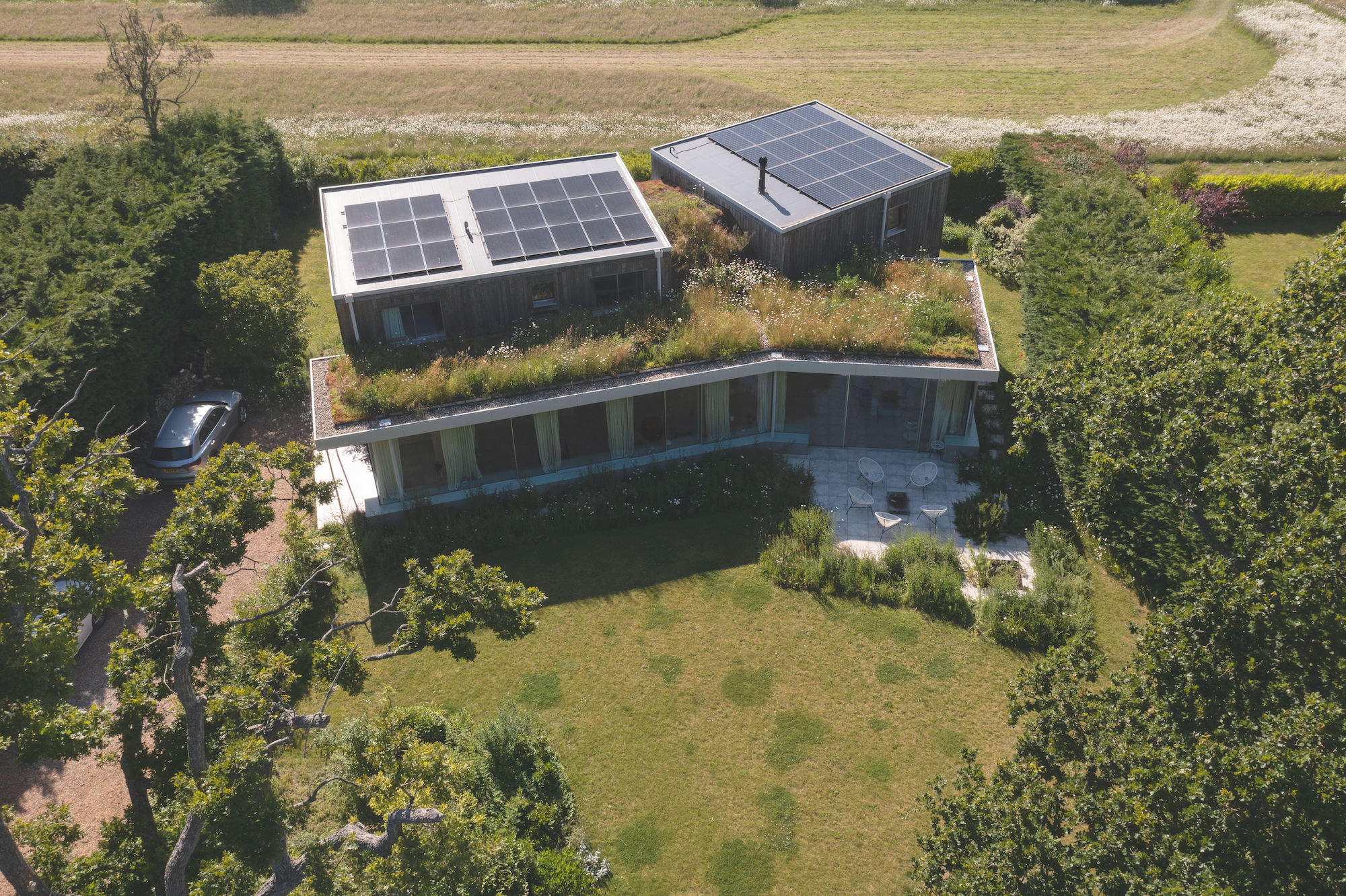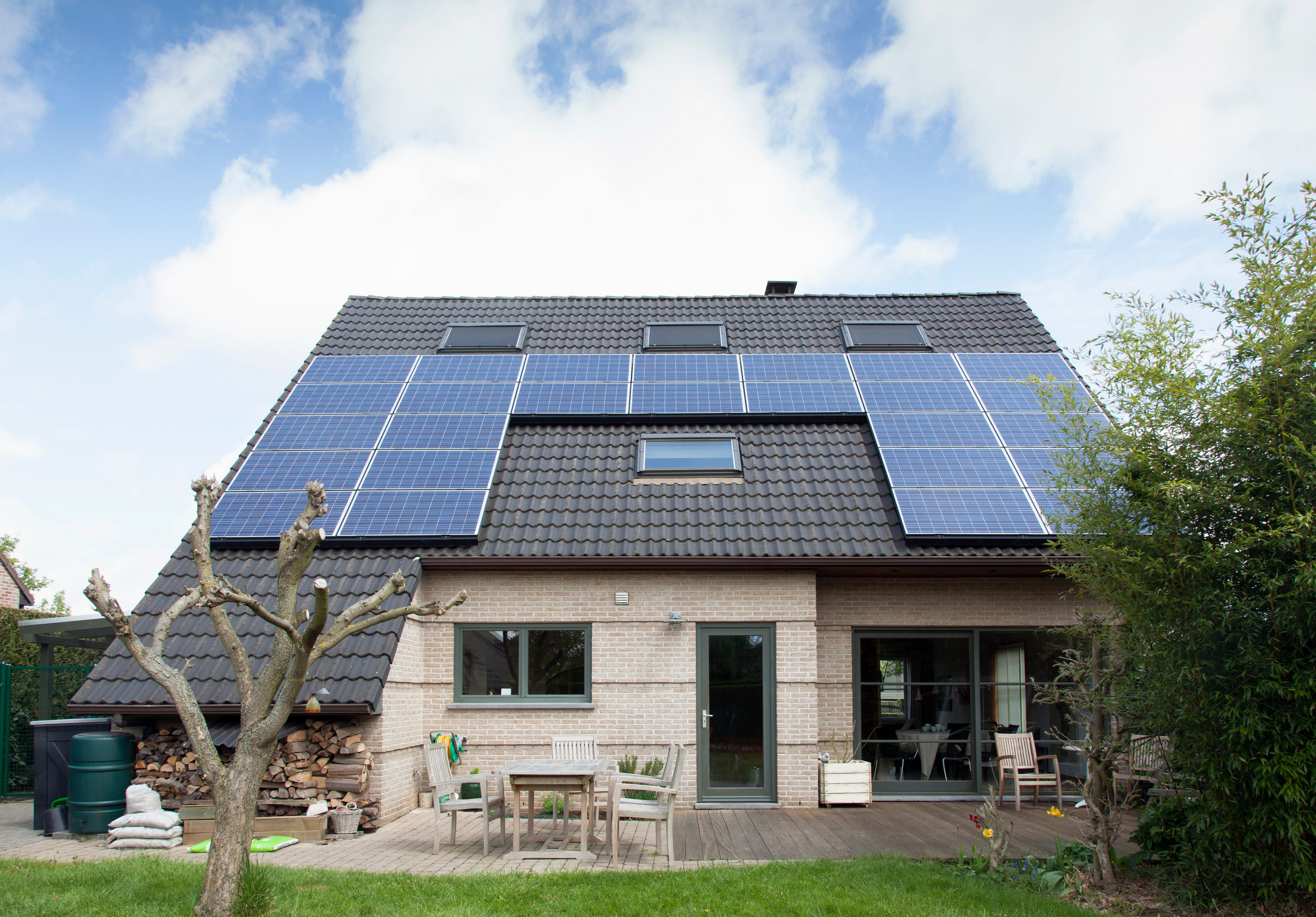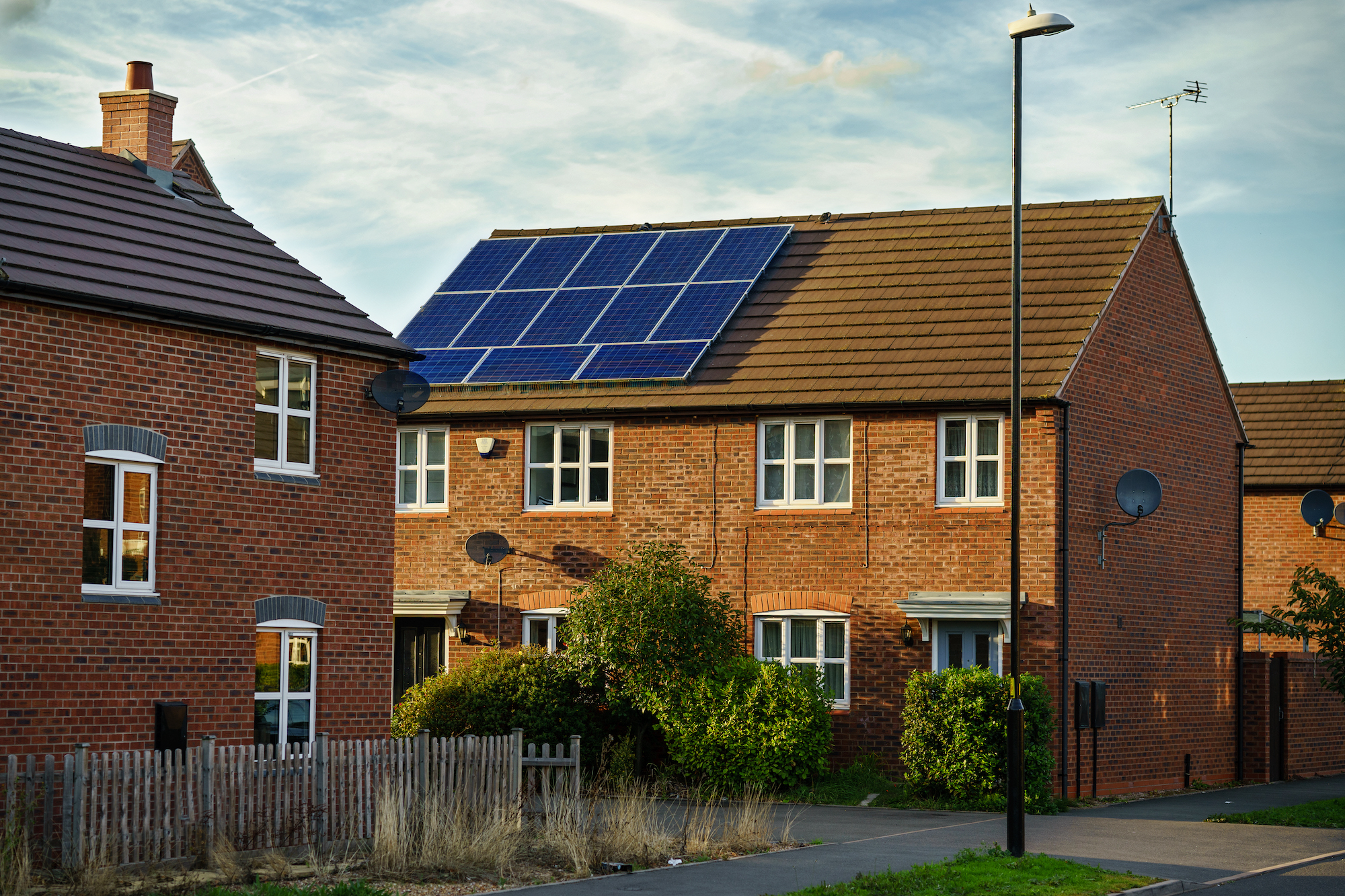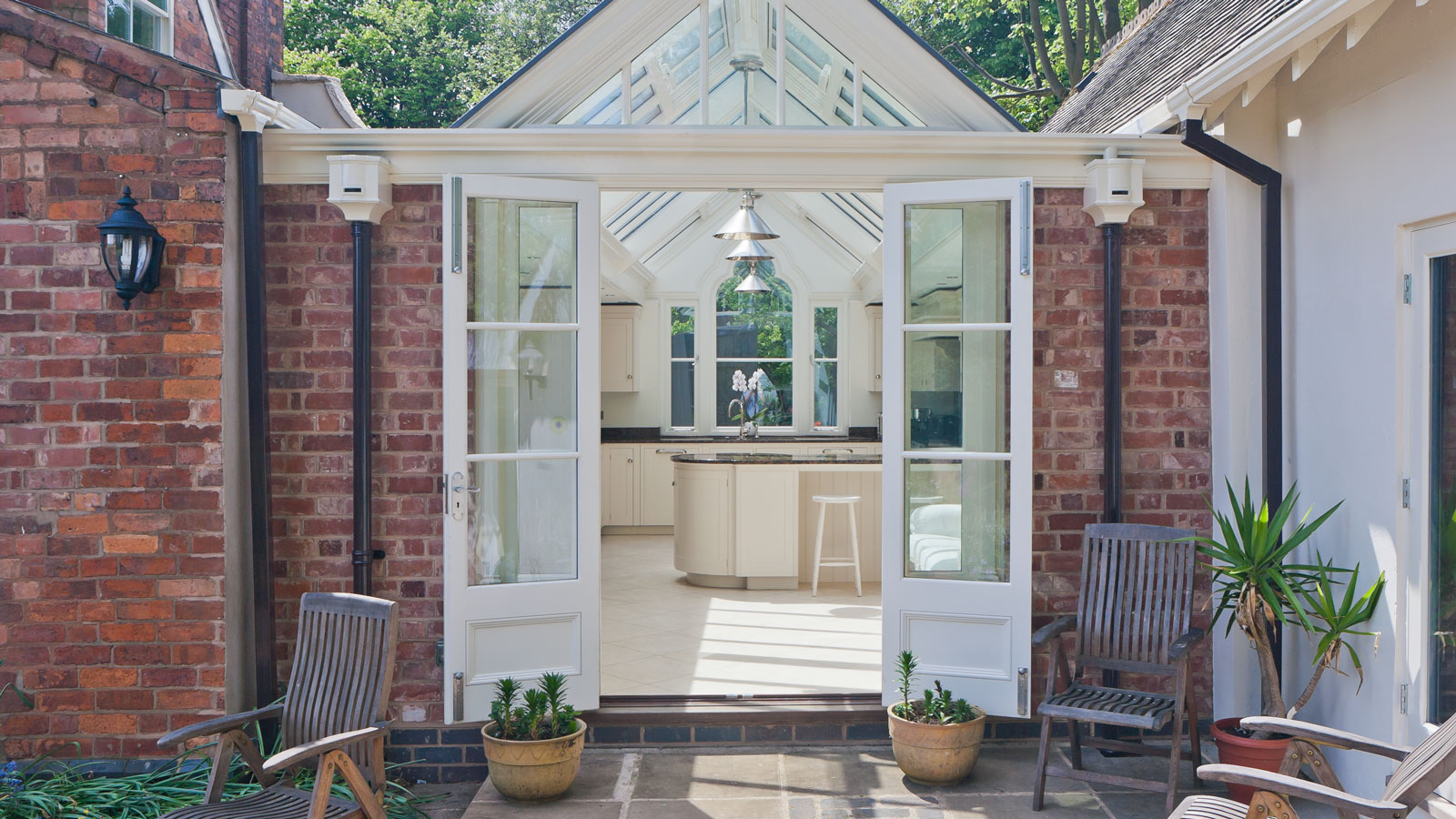Solar panels grants: What funding is available in 2025?
Find out what solar panel grants are currently available, if you're eligible and how to apply

Bring your dream home to life with expert advice, how to guides and design inspiration. Sign up for our newsletter and get two free tickets to a Homebuilding & Renovating Show near you.
You are now subscribed
Your newsletter sign-up was successful
Solar panels have become a popular way for UK homeowners to save on energy bills and cut carbon emissions.
With installation costs continuing to fall, a range of solar panel grants can make the switch even more affordable.
From national funding schemes to local group-buying initiatives, there are several options available in 2025 for solar panels. This guide explains what support is out there, who is eligible and how to apply.
Why consider solar panels grants now?
More than 1.5 million UK homes now have solar panels installed as of March 2025, according to government data.
That’s 5.3% of all households, and the number is rising fast – more systems were installed across 2023 and 2024 than in the previous six years combined.
This rapid growth shows how appealing solar-generated electricity has become, especially with high energy prices and growing climate concerns. And with the right solar panel grants, it can be more affordable than you think.
What solar panels grants are available in 2025?

Here’s a breakdown of the current funding and support schemes available to UK homeowners:
Bring your dream home to life with expert advice, how to guides and design inspiration. Sign up for our newsletter and get two free tickets to a Homebuilding & Renovating Show near you.
1. ECO4 Scheme (Energy Company Obligation)
ECO4 is a government-backed grant offers partial or full funding for solar PV systems for low-income and vulnerable households. Running until March 2026, it targets homes with EPC ratings below D.
You may qualify if you receive:
- Pension Credit
- Universal Credit
- Income Support
- Housing Benefit
Typical savings under this scheme range from £500 to £1,500 per household, according to John Burchill from East Riding Energy.
To apply, contact your local authority or check the government’s energy efficiency webpage.
2. LA Flex (Local Authority Flexibility Scheme)
Even if you're not on benefits, you might still qualify. LA Flex gives councils the power to assess low-income households (earning under £30,000) based on other factors like household size and health conditions.
3. Smart Export Guarantee
The Smart Export Guarantee requires energy suppliers to pay you for any unused electricity your solar PV system exports to the grid.
This includes systems up to 5MW but you must have an export meter (not all meters are compatible – check with your supplier)
“If you’re on the right tariff, you can export electricity for around 15p per kWh,” says energy expert David Hilton. “Gas is about 9p, so you could technically sell your electricity and buy gas cheaper.”
That said, most homeowners still benefit more by using the solar power they generate rather than exporting it.

With more than 35 years of expertise, David is a seasoned renewables and ventilation installer, recognised for his longstanding contributions to Homebuilding and Renovating magazine. Holding membership in the Gas Safe Register and armed with a Masters degree in Sustainable Architecture, David stands as an authoritative figure in sustainable building and energy efficiency. His extensive knowledge spans building fabrics, heat recovery ventilation, renewables, and conventional heating systems. Additionally, he serves as a distinguished speaker at the Homebuilding & Renovating Show.
4. 0% VAT on solar panels
From April 2022 to 2027, there's zero VAT on materials and installation for solar panels and other energy-saving home improvements. This can save homeowners between £250–£400 on the cost of solar panels.
5. Solar Together Scheme
Now live in areas like the West Midlands and this scheme allows homeowners to collectively buy solar panels and battery storage at reduced rates.
Councillor Andy Mackiewicz from Solihull Council, one of the areas the scheme is available, says: “Having your own solar panels and battery storage could help you generate your own clean electricity, save money on your energy bills, and reduce your carbon footprint.”
The scheme is run by iChoosr in partnership with local councils and offers:
- Competitive pricing via reverse auctions
- Pre-vetted, MCS-certified installers
- Optional battery storage and EV charge points
The Boiler Upgrade Scheme was designed to replace the Renewable Heat Incentive, which did help pay for solar panels, but this doesn't cover solar panels.
Can you still get free solar panels?

While "free" solar panels were once possible through the now-defunct Feed-in Tariff (FiT), these schemes have ended.
Some companies offered free panels in exchange for claiming the FiT, but this model is no longer active.
“I think the day of incentives is gone,” says David Hilton. “We’re moving into a space where the focus is on generating and exporting energy – not handouts.”
Are solar panels still worth it without a grant?
The short answer is yes - especially when combined with battery storage. Even without a grant, today’s prices are far more affordable:
- Solar PV: Now around £5,000–£8,000, down from £12,000+ in 2010 and dropped 73% since 2015
- Solar thermal: Between £4,000–£7,000, depending on system size
Add to that energy savings of up to £700 per year, and panels often pay for themselves within 6–10 years.
“You're always going to use electricity,” Hilton adds. “So yes, they’re always going to be worth it – unless you live in a thatched cottage or have heritage tiles that can’t accommodate the install.”
Want to know more? Energy expert David Hilton has written an honest review of what's it like living with solar PV panels and if they're really worth it.
Tips before applying for a solar panels grant
- Make sure you're eligible – especially for local or ECO4 schemes.
- Ensure you own your property – lease agreements can complicate things.
- Check if your export meter supports SEG.
- Get quotes from MCS-certified installers.
- Don’t choose solar instead of insulation – they work best together, according to David Hilton.
With energy bills still high and solar technology more accessible than ever, there’s never been a better time to explore solar panels grants.
Whether you're eligible for national schemes like ECO4, taking part in group-buying initiatives like Solar Together, or simply taking advantage of 0% VAT, 2025 is shaping up to be a big year for clean, homegrown energy.

News Editor Joseph has previously written for Today’s Media and Chambers & Partners, focusing on news for conveyancers and industry professionals. Joseph has just started his own self build project, building his own home on his family’s farm with planning permission for a timber frame, three-bedroom house in a one-acre field. The foundation work has already begun and he hopes to have the home built in the next year. Prior to this he renovated his family's home as well as doing several DIY projects, including installing a shower, building sheds, and livestock fences and shelters for the farm’s animals. Outside of homebuilding, Joseph loves rugby and has written for Rugby World, the world’s largest rugby magazine.
